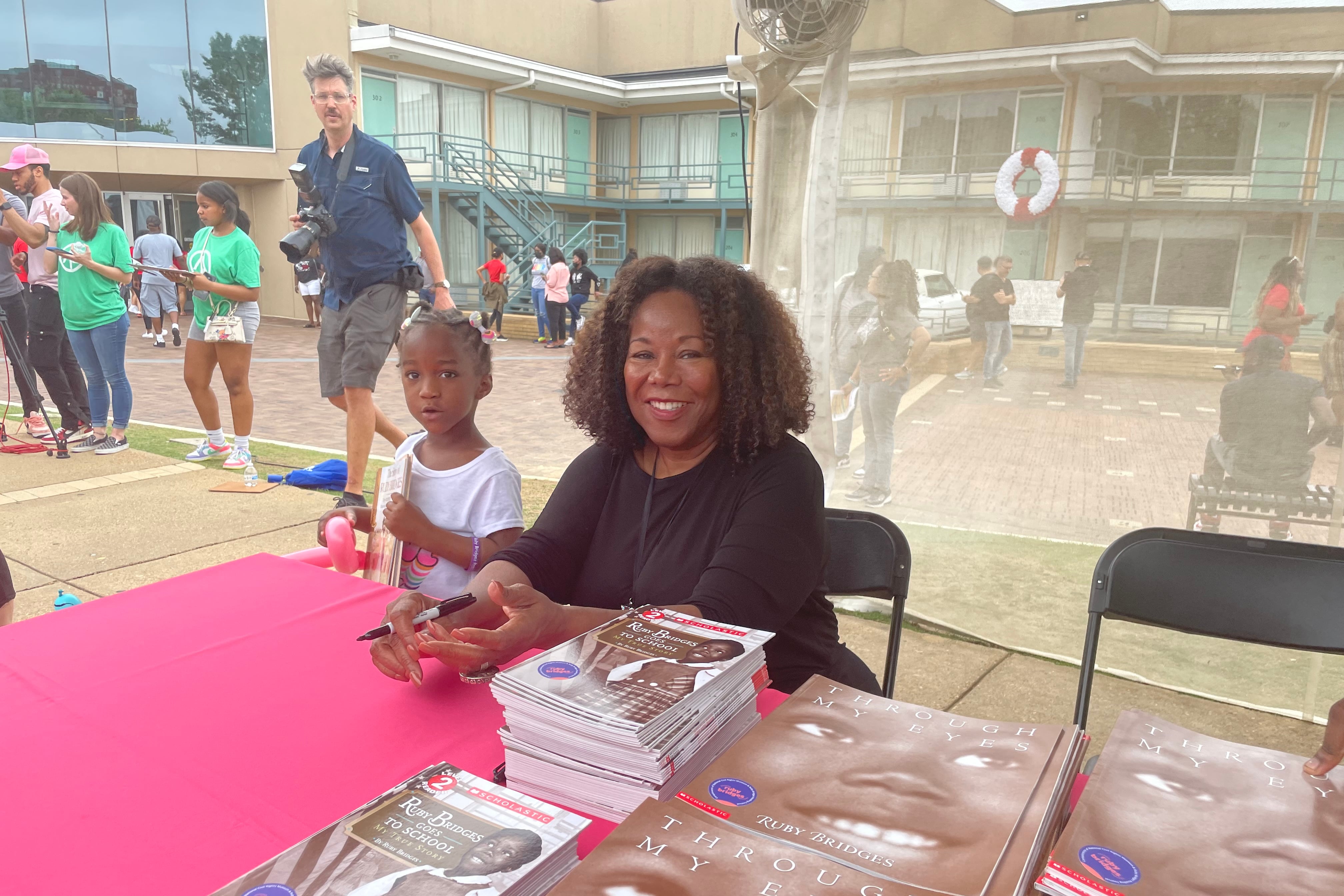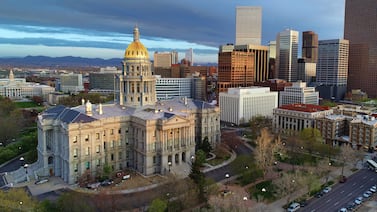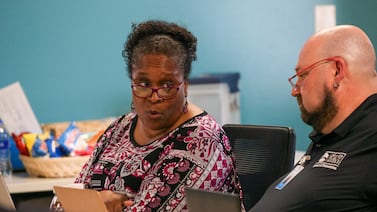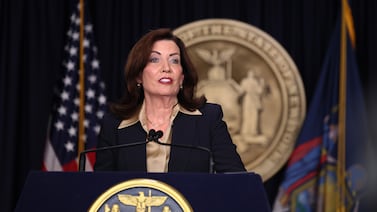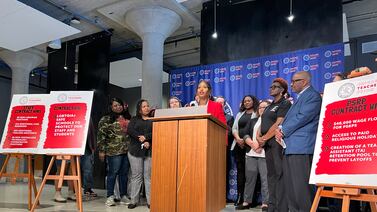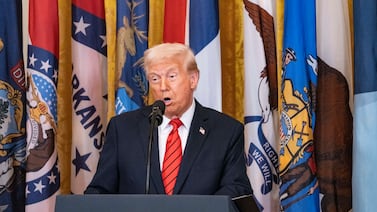In elementary school several years ago, Olivia Shackelford read about how 6-year-old Ruby Bridges endured racial slurs, ostracism, and death threats for integrating an all-white elementary school in New Orleans in 1960.
Groups such as Moms for Liberty that try to get books about race banned from schools say that reading such stories can traumatize children.
But Bridges’ story didn’t traumatize Olivia, her mother said. Instead, it energized her desire to learn more about the history of racism in America and the sacrifices of people like Bridges.
“She read about Ruby Bridges and the impact she had on integration, and she was obsessed, for years, with meeting her,” said Stephanie Shackelford, who brought Olivia, now 13, and her two other daughters, Cassidy and Blue, to the Ruby Bridges Reading Festival at the National Civil Rights Museum in Memphis on Saturday.
“We’re from Cabot, Arkansas, and found out that this was going on in Memphis, so she finally got a chance to meet her.”
As Tennessee, Florida, Texas and other states remove books that recount painful periods in history from school shelves, Bridges said that book festivals like the one that bears her name will be key to helping children like Olivia learn about the history of racism in America.
According to a report by PEN America, a group that champions freedom of expression through literature, 1,477 instances of book banning occurred in the first half of the 2022-23 school year, up 28% from the previous year.
And while Florida and Texas led with the most bans, Tennessee law is also making it easier for local authorities to ban books — including titles like Bridges’ own “Ruby Bridges Goes to School,” which a parents group in Williamson County objected to.
Bridges spent part of Saturday afternoon signing her newest children’s book, “I Am Ruby Bridges: How One Six-Year-Old Girl’s March to School Changed the World,” and others. Before that, she spoke to reporters about how her story wound up being the target of book bans, what must be done to combat them, and why stories like hers are especially important during this time.
Here are some highlights:
On her first book, “Ruby Bridges Goes to School,” becoming the target of book bans:
“I try to write my books in an uplifting way. My books have been truthful, and I do uplift everyone who was involved (in her integration effort): my teacher, who was white, my psychologist, who was white, the federal marshals who supported me, the people around the country who supported me.
“(But) they said the reason my books were being banned was because it made young white kids feel bad about themselves. So, for them to say that, that’s ridiculous. So, when they started targeting me, I couldn’t ignore it. Then I got a call from Congress asking me if I would speak about it.”
(Bridges spoke against Texas book bans during a House Oversight Committee hearing in 2022).
“Once my books are pulled down, you probably should expect that a lot more would follow. But if you’re banning my books because they’re too truthful, then why don’t we start having a conversation about the books that we force our young people to study, like the textbooks we know omit so much of the truth?
“So, if we’re going to ban my books, let’s take them all off the shelves and start anew.”
On what parents and communities should do to fight book bans:
“I think this festival speaks to that. We need to all come together to make sure books are available to kids, and to grow more reading festivals.
“I believe that if we’re going to get past our racial differences, we can’t do it alone. There was a time when we, as African-Americans, couldn’t be caught with a book, or couldn’t let people know we knew how to read. But we’ve come a long way from that, and it seems like we could be heading in that direction again if books are being banned.
On why the racism she endured as a 6-year-old is important to children’s understanding of history:
“I was recently asked to speak at a conference based on history. I was thinking about what I wanted to say about history. Then I thought about how I had to get on a plane to travel from Louisiana to D.C.
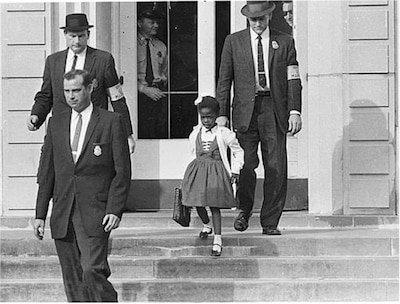
“I thought about how I arrived and made it safely, but someone in another plane didn’t (because of a plane crash).
“When that happened, they had to send a plane crew to the wreckage, to go through that wreckage, and to find that little black box.
“Can you imagine what those people must have seen going to that site, going to that wreckage, to get that little black box? Why was that box so important? It was the history that little black box held to make sure that I, on the next flight, would arrive safely.
“If history works for something like that, what makes us think it won’t work for racism — to rid us of racism? If we tell the truth — good, bad, or ugly — if we teach that it happened, then maybe history will move us past our racial differences.”
On how being a civil rights icon propelled her to become a writer and literacy advocate:
“I never dreamed that I would become an author myself, but writing my own story made me realize that I didn’t just want to give books away to kids, but to inspire them to write. I hope this festival can help do that.”
Bureau Chief Tonyaa Weathersbee oversees Chalkbeat Tennessee’s education coverage. Reach her at tweathersbee@chalkbeat.org.

